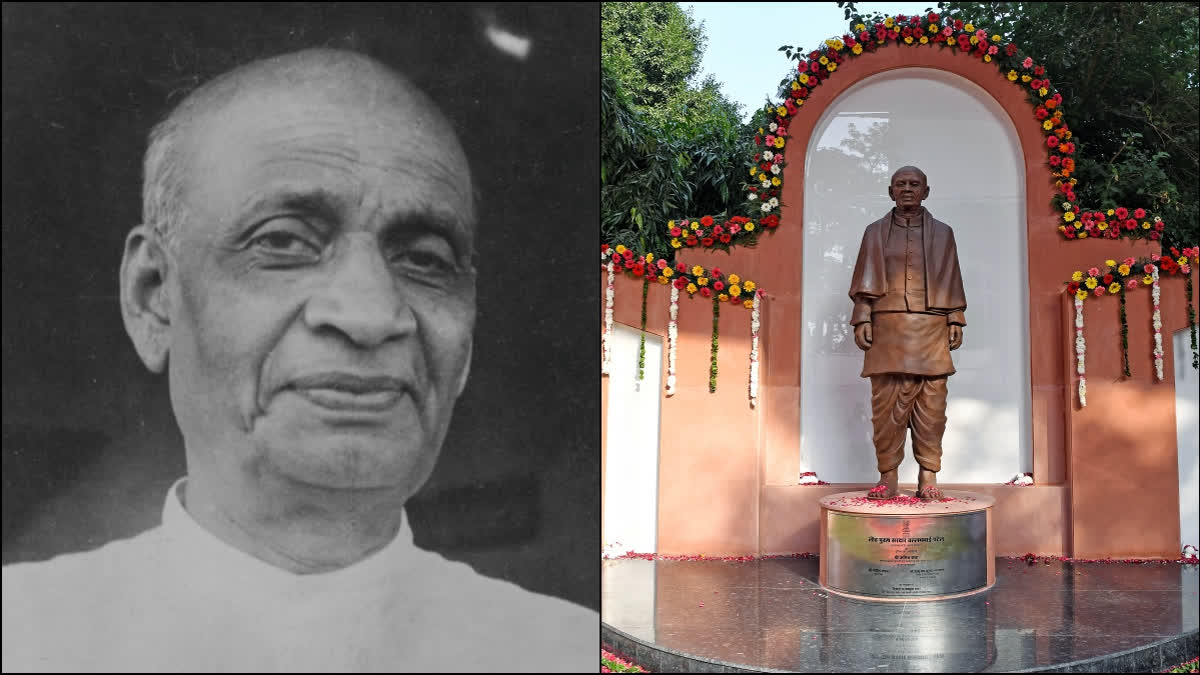New Delhi: Rashtriya Ekta Diwas, or National Unity Day, is celebrated in India on October 31st each year. It was established to commemorate the birth anniversary of Sardar Vallabhbhai Patel, a key leader in the Indian independence movement and the first Deputy Prime Minister and Home Minister of India.
The day aims to promote national integration and unity among citizens, highlighting Patel's efforts to unify the nation post-independence. Various events and activities are organised across the country to honour his legacy and reinforce the message of unity.
Brief history
Rashtriya Ekta Diwas was first observed on October 31, 2014, following a declaration by the Centre to honour Sardar Vallabhbhai Patel's contributions to national unity. Patel, often called the 'Iron Man of India', played a crucial role in integrating over 500 princely states into the Indian Union after independence in 1947.
The observance of this day was part of a broader initiative to promote national integrity and reinforce the importance of unity in diversity. Activities typically include marches, discussions, and cultural programs aimed at fostering a spirit of harmony among citizens. The day serves as a reminder of Patel's vision for a united India and encourages efforts towards maintaining communal harmony and national integration.
Significance
Rashtriya Ekta Diwas holds immense significance in today's world. It serves as a reminder of the importance of national integration and unity, encouraging citizens to rise above divisions based on religion, caste, or region. The day commemorates Sardar Vallabhbhai Patel's contributions in uniting India after independence, recognising his leadership and vision.
It fosters awareness about the values of unity and diversity, often through educational programs and events that engage the community. The day emphasises the role of every citizen in maintaining peace and harmony, inspiring collective efforts towards a stronger nation.
Various activities highlight India’s diverse culture, reinforcing the idea that unity does not mean uniformity. Rashtriya Ekta Diwas aims to instil a sense of pride and commitment to the ideals of a unified India among its citizens.
About Sardar Patel:
Vallabhbhai Jhaverbhai Patel was born in Nadiad, Gujarat on 31 October 1875. He was a senior leader of the Indian National Congress who played a leading role in the country’s struggle for independence. He was a successful lawyer. He subsequently organised peasants from Kheda, Borsad, and Bardoli in Gujarat in non-violent civil disobedience against the British Raj. Under the chairmanship of Sardar Patel, the 'Fundamental Rights and Economic Policy' resolution was passed by the Congress in 1931. At the age of 16, he was married to Jhaverba Patel.
He was very much attached to Mahatma Gandhi's Salt Satyagraha. In 1924, he was elected as the Municipal President and was in the position until 1928. In the Karachi session of the Indian National Congress, he presided and was imprisoned in 1932.
In 1940, Mahatma Gandhi launched Individual Civil Disobedience to oppose the fact of India participating in the war. Patel was arrested on November 17, 1940, along with other congress leaders. He was a great instrument in the Indian Independence struggle.
Vallabhbhai convinced 559 of 562 princely states to join the Union of India. But 3 states refused to join. They were Jammu and Kashmir, Hyderabad and Junagadh. Patel used Operation Polo to let Nizam join with Union of India.
In Junagadh, Patel used force and ensured it was a part of India. Sardar Vallabhbhai Patel served as the First Deputy Prime Minister of India from 15 August 1947 to 15 December 1950. He acted as Home Minister during the political integration of India and the Indo-Pakistani War of 1947. He was also the Minister of Information and Broadcasting.
After facing a massive heart attack, he breathed his last on December 15, 1950, in Bombay (now Mumbai). Sardar Patel was bestowed with Bharat Ratna the country’s highest civilian award posthumously in 1991.



